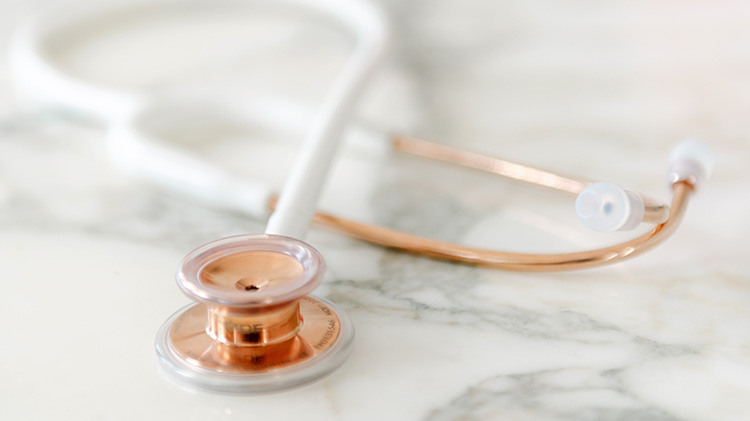The NCLEX (National Council Licensure Examination) is a standardized test that nursing graduates must pass after nursing school to get their nursing license in the United States and Canada (other countries as well!). NCLEX is meant to ensure nursing graduates will be safe nurses. Let’s take a look at everything you need to know about the NCLEX:
Types of NCLEX Exams
There are two main types of NCLEX exams:
- NCLEX-RN: For nursing graduates wanting to get licensed as a Registered Nurse (RN).
- NCLEX-PN: For nursing graduates wanting to get licensed as a Licensed Practical Nurses (LPN) or Licensed Vocational Nurses (LVN).
Purpose of the NCLEX
To make sure nursing graduates are safe to enter into practice. It tests the graduates competence at as an entry-level nurse (meaning they know you are new so they won’t be asking you information that you gain with years of nursing experience).
Exam Structure
- CAT Testing: The NCLEX uses a unique format called Computerized Adaptive Testing (CAT). This means that the difficulty of the test adjusts based on your ability to answer each question. This actually makes the test more “fair” for each test taker. You won’t get all easy questions or all difficult questions. Want to know more about CAT for NCLEX, go right to the makers of the exam: Computerized Adaptive Testing Page
- Question Types: You can plan to see both stand-alone items (like multiple choice, fill-in-the-blank, multiple response, ordered response, and hot spot questions) as well as case studies (NextGen). You may see charts, tables, and graphics included within questions.
- Topics Covered: How do the creators decide what content will be tested? They send out surveys and analyze what entry-level nurses are doing in practice every 3 years. That analysis is then broken up in 8 content areas on NCLEX:
- Safe and Effective Care Environment (including Management of Care and Safety & Infection Control)
- Health Promotion and Maintenance
- Psychosocial Integrity
- Physiological Integrity (including Basic Care and Comfort, Pharmacological and Parenteral Therapies, Reduction of Risk Potential, Physiological Adaptation).
Preparing for the NCLEX
Preparation is crucial for success on the NCLEX. Here are some tips:
- Study Plans: Decide on a study plan that works best for you. Be sure to utilize a calendar to outline what content you will cover each day you plan to study. This helps you stay on track and helps decrease your anxiety because each day you can cross out what you successfully complete. (PS- our NCLEX prep guided study offers this over a 3 week period)
- Practice Tests: Take practice tests to familiarize yourself with the format and question types. This helps you focus on need to know content. Many platforms offer you test taking strategies with each question or content hints to help you remember the content. When doing practice questions be sure to read the rationale every time (even when you get the question correct!)
- Review Courses: Consider enrolling in an NCLEX prep course for guided preparation. Make sure to review what the course offers. Some are 3-5 days (intensive!) and some (like ours) has a “slow and steady” approach. Choose a program that works best for your learning.
- Get your mind right: NCLEX is going to be nerve racking, be prepared mentally! Find anxiety management strategies that work well for you. Practice those strategies so you can utilize them during the exam.
- NCLEX test Plan: NCSBN (the creators of NCLEX) offer test blueprints (for both RN and LPN exams). Take time to browse the test plan and ensure you have covered all the content in your preparation.
Registration and Fees
To take the NCLEX, nursing graduates must apply for licensure/registration to the nursing regulatory body (state you plan to practice in) and then register with Pearson VUE (the testing service). The registration fee for the NCLEX-RN and NCLEX-PN is around $200. Once this is all processed you will get an email with your Authorization to Test (ATT). At that point you can choose your NCLEX test date!
After the Exam
Once the exam is completed, you will be able to get your quick results in 2 business days. If you do not pass the exam, you will receive a Candidate Performance Report (CPR). This document outlines your performance on the exam. The CPR will also give the test taker some resources to look at prior to retaking the exam.
Conclusion
If you’re feeling overwhelmed by the thought of preparing for the NCLEX, our program is here to help. As the founders of The Future RN, we’ve been teaching nursing students for over a decade, helping countless students pass the NCLEX on their first try. Our program has a 99% pass rate, and we’ve developed a proven system that includes a missing link for NCLEX prep – managing your test anxiety.
You’ll study just 1 hour per day for three weeks, and we guarantee you’ll pass! This approach allows you to build confidence and master the material without burnout, so you can walk into your exam feeling prepared and calm.
Ready to take the next step towards passing the NCLEX? Contact us to learn how we can help you pass on your first try!







